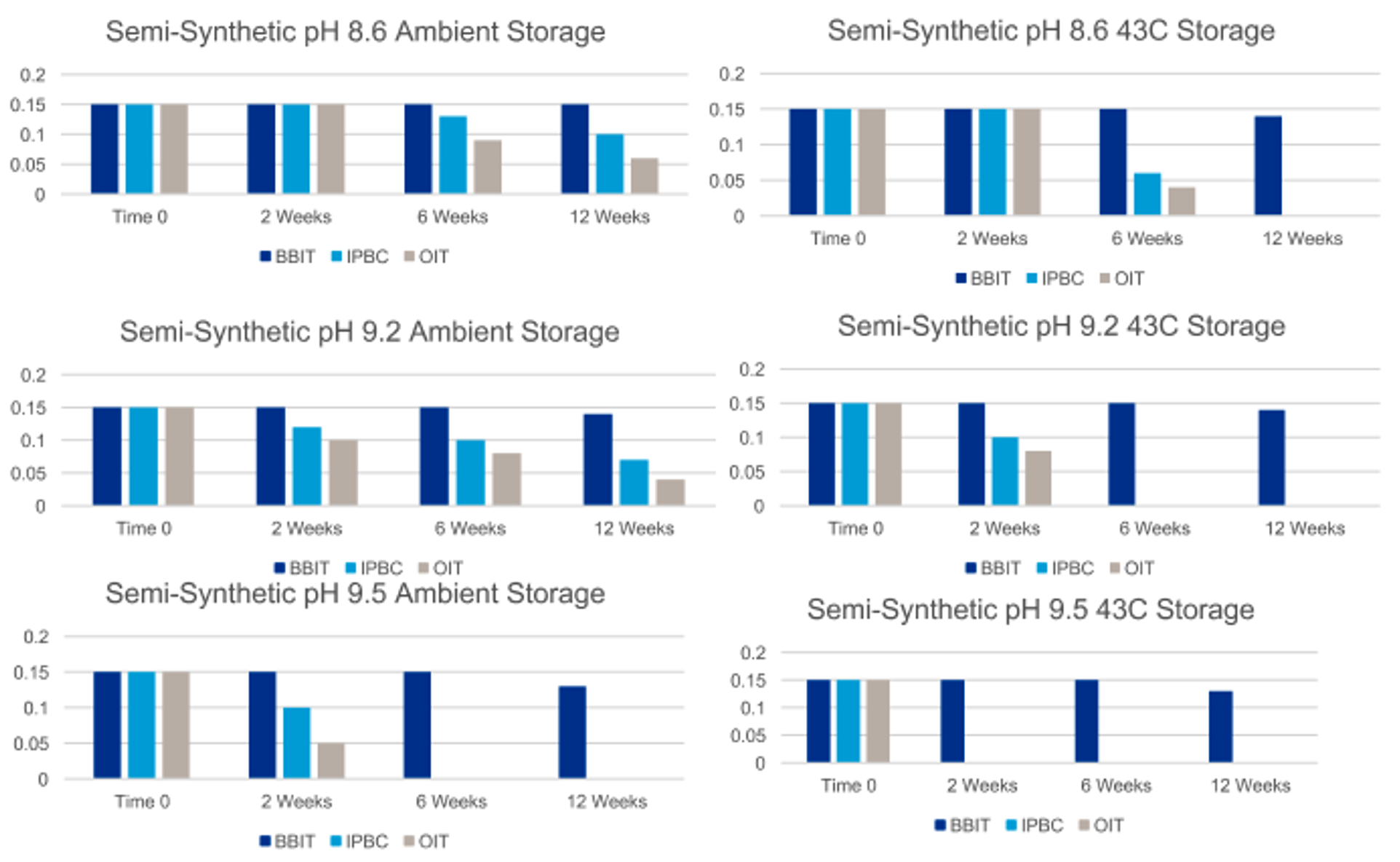Looking for a broad spectrum, formaldehyde-free antimicrobial that offers excellent thermal stability, stability over a broad pH range and compatibility with a variety of amine systems and other anti-bacterial preservatives? The Densil Antimicrobial, based on the chemical active n-butyl-1,2-benzisothizolin-3-one (BBIT) from Arxada are structurally similar to BIT chemistries but demonstrate broad spectrum anti-fungal properties in both metalworking fluid concentrates as well as tank side.
Metalworking formulations have become very sophisticated. Diverse metals and machining operations require complex additives, and these can be aggressive to antimicrobials. Semi-synthetic formulations, a rapidly growing segment of metalworking formulations, often utilize amine alcohols that that are also aggressive to antimicrobials.
The Densil Antimicrobial line from Arxada offers the formulator two options both of which provide long term thermal and chemical stability extending the life of both the metalworking fluid concentrate and the subsequent dilution:
- Densil Antimicrobial is based on the chemical active n-butyl-1,2-benzisothizolin-3-one (BBIT)

- CAS # 4299-07-4
- US EPA Registration # 1258-1249
- No restrictions with respect to metalworking use patterns (ie enclosed system labeling removed)
- Structurally similar to benzisothiazolin-3-one (BIT) but demonstrates broad spectrum anti-fungal active
Chemical Stability Evaluation
BBIT stability was benchmarked against iodopropynyl butyl carbamate (IPBCO and octyl isothiazolin-3-one (OIT). Same level of active ingredient was used in the concentrate, 0.15%.
- pH ranges were varied using different alcohol amine systems
- Chemical stability of each active was monitored in the concentrated formulation for 12 weeks
- Ambient storage (23°C)
Chemical Stability in Semi-Synthetics

Chemical Stability Summary
Semi-synthetics concentrates can contain as much as 50% water and their pH ranges are more alkaline than soluble oils. Under these conditions:
- BBIT maintained excellent chemical stability
- IPBC is more chemically sensitive to changes in pH and begins to hydrolyze. The elevated temperatures exacerbated this degradation.
- OIT is a less chemically stability isothiozoline product than BBIT. Higher alkalinity and higher temperature had an impact on its longevity.
Conclusion
- The Densil DN and Densil DG 45 offer the formulator a cost effective anti-fungal option for MW fluid applications.
- Densil Antimicrobial products are globally available
- Excellent compatibility with other metalworking ingredients
- Excellent long-term stability in a variety of formulations
- No usage restrictions, enclosed system verbiage has been removed
